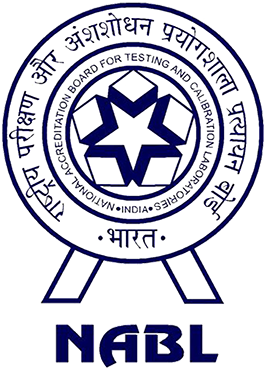Beta 2 Glycoprotein IgG
Beta-2 glycoprotein IgG measures the levels of IgG antibodies that target the beta-2 glycoprotein I (β2GPI) protein in the blood. This test is primarily used to diagnose antiphospholipid syndrome (APS), an autoimmune disorder characterized by an increased risk of blood clots, recurrent miscarriages, and other pregnancy-related complications. Elevated levels of β2GPI IgG antibodies indicate an abnormal immune response, where the body mistakenly attacks β2GPI, leading to coagulation issues. The presence of these antibodies is a critical marker for APS and helps guide the management and treatment of patients at risk for thrombotic events and other complications associated with this syndrome.
Beta-2 glycoprotein I (β2GPI) IgG antibodies are specific antibodies directed against β2GPI, a plasma protein involved in the regulation of blood coagulation and immune responses. The presence of β2GPI IgG antibodies in the blood is a significant marker used in the diagnosis and management of antiphospholipid syndrome (APS), an autoimmune disorder characterized by increased risk of blood clots (thrombosis) and pregnancy-related complications.
**Structure and Function:**
β2GPI, also known as apolipoprotein H, consists of five domains and circulates in the blood. It plays a critical role in inhibiting the formation of blood clots by binding to negatively charged phospholipids on cell membranes. This binding prevents excessive clot formation and maintains normal blood flow. In APS, the immune system produces antibodies against β2GPI, interfering with its anticoagulant functions and promoting thrombosis.
**Role of IgG Antibodies:**
Immunoglobulin G (IgG) is the most abundant class of antibodies in the blood and is crucial for long-term immune protection. β2GPI IgG antibodies specifically target β2GPI, indicating an autoimmune response where the body’s immune system mistakenly attacks its own proteins.
**Clinical Significance:**
1. **Diagnosis of APS:**
The detection of β2GPI IgG antibodies is a key criterion for diagnosing APS. This condition is characterized by recurrent venous or arterial thrombosis, pregnancy complications such as recurrent miscarriages, stillbirths, and pre-eclampsia. The presence of these antibodies, combined with clinical symptoms, confirms the diagnosis of APS.
2. **Thrombosis Risk:**
Elevated levels of β2GPI IgG antibodies are associated with an increased risk of thrombotic events. These antibodies disrupt the normal anticoagulant activity of β2GPI, leading to an increased propensity for blood clot formation, which can cause complications such as deep vein thrombosis, pulmonary embolism, and stroke.
3. **Pregnancy Complications:**
In pregnant women, the presence of β2GPI IgG antibodies can lead to severe complications, including recurrent miscarriages, intrauterine growth restriction, and stillbirth. Identifying these antibodies helps in the early detection and management of at-risk pregnancies, improving outcomes for both the mother and the baby.
**Testing and Interpretation:**
The detection of β2GPI IgG antibodies is performed using enzyme-linked immunosorbent assay (ELISA) or other immunoassays. A positive result indicates the presence of these antibodies and, when correlated with clinical symptoms, confirms a diagnosis of APS.
**Conclusion:**
Beta-2 glycoprotein IgG antibodies are vital markers in the diagnosis and management of antiphospholipid syndrome. Their detection provides essential information for assessing the risk of thrombotic events and pregnancy complications, guiding appropriate therapeutic interventions, and improving patient outcomes. Regular monitoring and timely medical intervention are crucial for managing patients with APS and mitigating associated risks.
We provide blood tests in Noida, Gurgaon,
Faridabad,
Delhi,
Indirapuram, Ghaziabad, Greater Noida, and Greater Noida Extension(west).
















